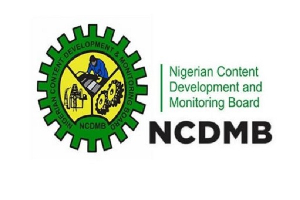For Nigeria and other African countries to fully translate its vast hydrocarbon wealth into shared prosperity and sustainable development, local content must become the cornerstone of the continent’s energy strategy, the Executive Secretary of the Nigerian Content Development and Monitoring Board (NCDMB), Engr. Felix Omatsola Ogbe, has said.
Ogbe made the call during the 4th edition of the African Petroleum Producers Organisation (APPO) Conference and Exhibition on Local Content in Africa, held in Brazzaville, Congo.
The high-level event brought together policymakers, energy ministers, and industry leaders from across the continent to advance local content implementation and energy development in Africa.
Representing the Minister of State for Petroleum Resources (Oil), Sen Heineken Lokpobiri, at APPO’s Statutory Ministerial Council Meeting—where a new Secretary General was elected—Ogbe stressed that African nation must build indigenous capacity and value-retention mechanisms to benefit fully from their abundant resources.
He noted that the continent’s over 125 billion barrels of proven oil reserves and 620 trillion cubic feet of gas would continue to yield limited impact unless countries adopt and effectively implement local content policies.
“Local content is not merely a regulatory framework; it is a development strategy. It represents our collective resolve to build indigenous capacity, retain value within our borders, and create sustainable jobs for Africa’s young and dynamic population,” Ogbe said.
Drawing from Nigeria’s 15 years of successful local content practice, Ogbe highlighted that deliberate policy design and pragmatic execution can deliver measurable economic gains. He reaffirmed NCDMB’s readiness to share its frameworks, tools, and expertise with other African petroleum-producing nations.
According to him, the Board has developed robust models—including policy templates, monitoring structures, and digital compliance platforms such as the NOGIC Joint Qualification System (NOGIC JQS)—that could serve as blueprints for other African countries seeking to deepen local participation.
Ogbe also proposed the establishment of an African Energy Services Network, aimed at connecting fabrication, manufacturing, and engineering hubs across the continent to strengthen value retention and build a pan-African industrial ecosystem.
“Such a framework would enable African companies to complement one another’s capacities, creating cross-border linkages that enhance competitiveness and drive industrialisation,” he added.
The NCDMB boss commended the creation of the African Energy Bank, a joint initiative by APPO and Afreximbank, describing it as a milestone in ensuring competitive financing for Africa’s oil and gas projects. He assured that NCDMB stands ready to provide technical support and project linkages to help actualize the bank’s objectives.
Ogbe further cited Nigeria’s achievements in local content infrastructure, including the Egina FPSO Integration Yard at LADOL Free Zone, Lagos—Africa’s first such facility—and the NCDMB Industrial Parks in Bayelsa and Cross River States, designed to host manufacturers of oil and gas components and create opportunities for SMEs and investors.
He also spotlighted the Board’s Research and Development (R&D) and Human Capacity Development (HCD) initiatives, which have trained over 20,000 Nigerians in specialized oil and gas skills, describing them as scalable models for other African countries.
“Nigerian service companies are eager to collaborate with their African counterparts in engineering, marine, fabrication, and digital energy services,” he said, noting that cross-border investments in modular refineries, gas processing, and local manufacturing could further deepen integration.
During the conference, senior NCDMB officials also participated in technical sessions showcasing Nigeria’s local content journey. Panel discussions featured insights from key directors and managers of the Board, alongside industry partners such as Cypher Crescent Ltd., generating strong interest from other countries keen to adopt Nigeria’s model.
Ogbe reaffirmed that NCDMB’s vision extends beyond Nigeria, emphasising that Africa’s collective progress depends on leveraging shared expertise, building indigenous capacity, and sustaining intra-African collaboration in the energy value chain.
Business News of Friday, 7 November 2025
Source: www.thenationonlineng.net













